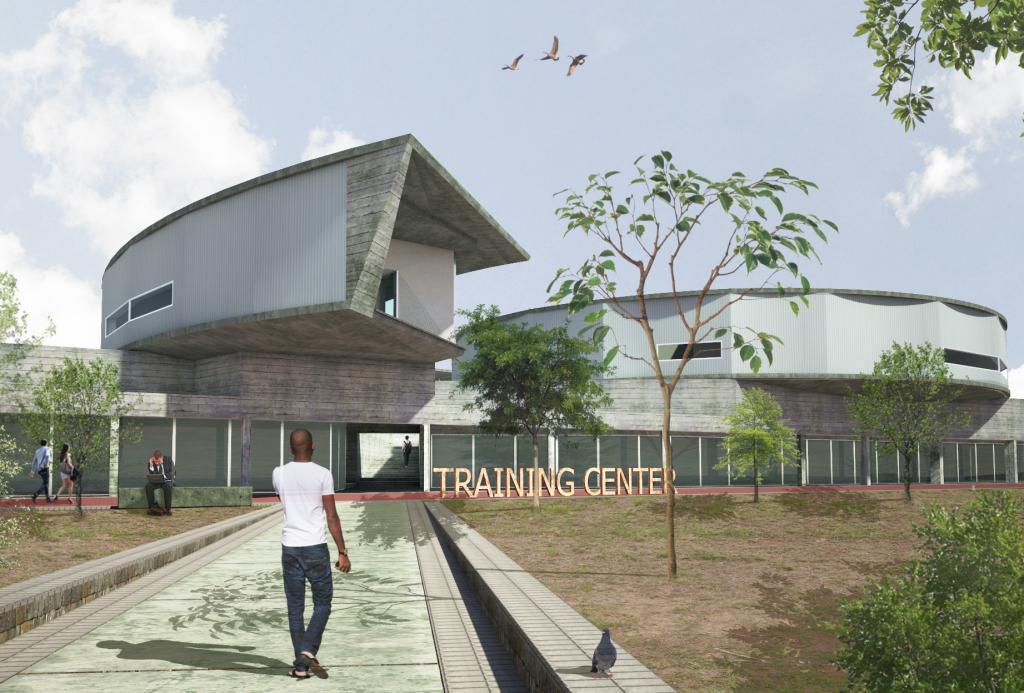Africa-Press – Cape verde. A few dozen people, mostly young people, work around a similar number of computer monitors in a large room in one of the buildings at Techpark, Cape Verde’s technology park, located in Praia. They are employees of Visionware, a Portuguese cybersecurity company that has opened a branch there to take care of the services it provides in the archipelago, but also to support clients in other parts of the world. Valter Fortes, a computer security consultant, values the contact with his colleagues at the Operational Center for the Information Society (Nosi), a public company that was created to take care of the state’s technology sector, has grown and now occupies another floor of the building. “When we were in the historic center [in the previous office], we didn’t have this exchange of experiences with other companies,” he tells Lusa, before going back to analyzing data on the screens. “I hope more come, so we can have more contacts,” says Carla Mendonça, an employee at TEI Telecomunicações, a company with a sales department in the park. The advantage is “sharing opportunities with other companies”, describes Venicy Brito, commercial and marketing director of the company that handles the installation of telecommunications and other technologies.
“We are not going to inaugurate walls, we are going to inaugurate a functioning ecosystem”, says Carlos Monteiro, chairman of the board of directors of the public technology park, in an interview with Lusa, regarding the official ribbon cutting ceremony, on 5 and 6 May, in Praia and Mindelo, respectively.
It is like a new house with an environment that is conducive to the sector and the person in charge has figures ready for the presentation: 23 companies are present, of seven nationalities, some smaller, some larger, involving 400 workers in the daily life of Techpark.
The five buildings contrast with the capital’s landscape, with neighbourhoods dotted with self-built projects that are yearning for development.
The unconventional architectural forms reflect the functions of the buildings – incubation of innovative companies (‘startups’), training and certification (required by multinational brands such as Microsoft, Cisco, Oracle and others), production and development (which includes a data processing centre or “data centre”), conferences and business.
In Mindelo, on the island of São Vicente, there is another hub of the park, which aims to expand the same services and where a recovery “data centre” is already in operation, in an archipelago connected internally by submarine fibre optic rings and to the world by four international Internet cables, points out Carlos Monteiro.
The construction and equipping of the park represented an investment of around 50 million euros, with support from the African Development Bank (ADB), ready to compete with other parks around the world, with contacts underway to establish more international companies and promote services.
“We see Techpark as a service exporting unit. Visionware is a great example”, in addition to other foreign companies that work for the archipelago market, but also “for their country of origin”.
Nosi’s experience, since the end of the 90s, has allowed Cape Verde to create “a culture of innovation” and specialists, he explains, leading to the new park, where some of these entrepreneurs are now applying their ideas.
“These are pieces that predate the technology park and now, with Techpark, they will have the best environment to organize themselves”, he says.
“We have a very strong track record, we have already exported many services from Cape Verde to neighboring countries”, working with “all Portuguese-speaking countries (PALOP)”, exemplifying with the recent selection of Nosi in a competition for the digitalization of the judicial system, in Angola.
Techpark’s business plan foresees that 30 companies will be welcomed by 2030 and the park’s leader expects that the turnover will start to be a visible force in the production of wealth, whether through the creation of jobs (up to 1,000 direct and double that number indirect) and wage levels, or through the export of services.
All this to fulfil the often-repeated aim of diversifying the economy beyond tourism.
The script of arguments to attract investors includes the application of tax benefits associated with a “free zone” for technology and the values of Cape Verde (freedom, democracy, political and judicial stability) in contrast to other markets on the continent, says Carlos Monteiro.
The list also includes the country’s progress in the African context in several digital indicators and the government’s commitment to developing the concept of “technological islands of West Africa”.
The president of Techpark hopes to accelerate partnerships with universities, in addition to specialized training at the park, to combat the risks of a lack of qualified labor and talent flight – the project is focused on attracting the diaspora, which includes 1.5 million Cape Verdeans and descendants, three times the number who live on the islands.
A new project is scheduled for Junean event in which an emigrant entrepreneur, with a consolidated technology business in the USA, will visit the park and help achieve one of the objectives, to project Techpark on a global level.
For More News And Analysis About Cape verde Follow Africa-Press






